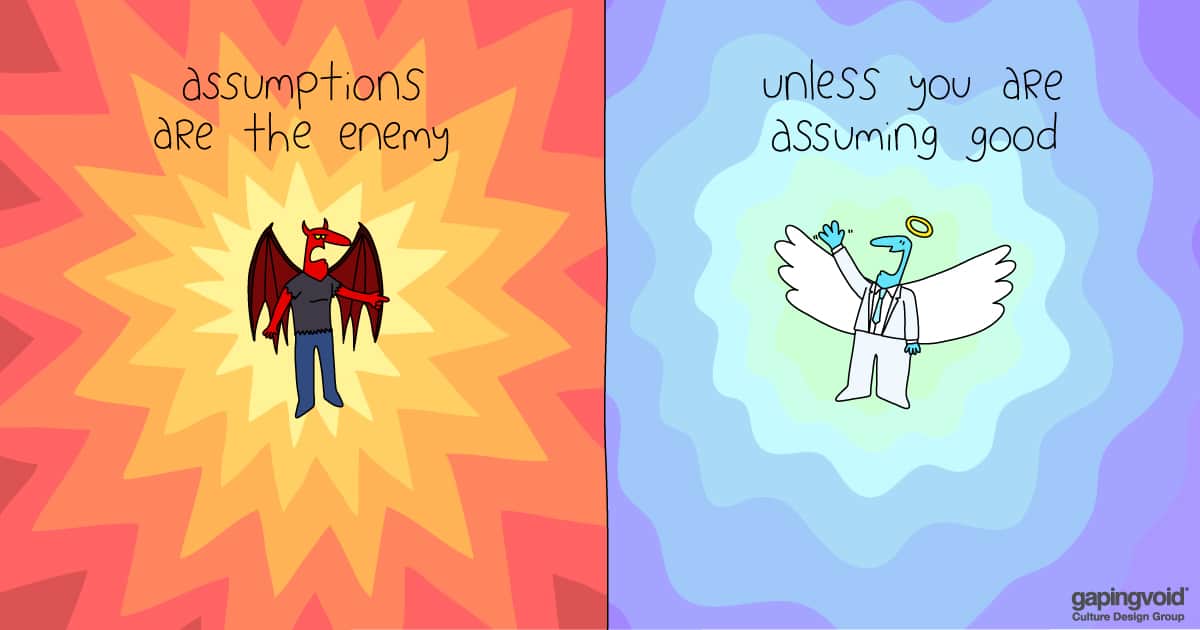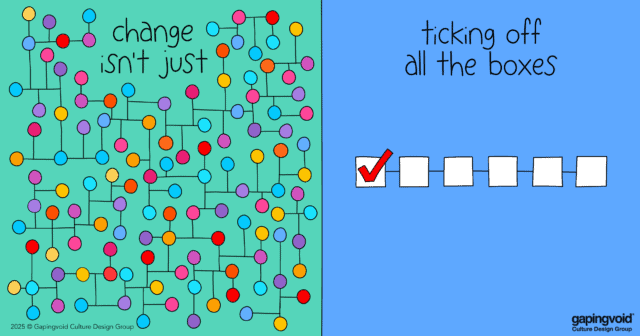
Assumptions are the enemy unless you are assuming good
Out of Context, or Just Too Much Context to Ignore?
Lately, we’ve been calling out some of the worst offenders in the corporate and academic worlds for their overzealous approach to linguistic policing, one that seems to say, “If we cancel all the words, we’ve eradicated the problem.”
One example of this linguistic overreach may be ongoing issues surrounding racial insensitivity and a culture of exclusion at Lululemon, a brand with an aesthetic and target market that just screams “Rich White Lady.”
In response to internal and external pressure, in July, the retailer shut down its R&D division White Space Lab, mainly because staff members felt triggered by the perceived implications of the name.
Public and Private Negativity Was Building
We’ll mount a defense for the use of the term “White Space” below, but first, let’s acknowledge that this outrage wasn’t a one-off. Lululemon staffers had been complaining of cultural insensitivity for years.
The brand has a history of internal issues around race, gender, and equity, documented in recent pieces from Business Insider, PopSugar, and other business and cultural media outlets. BI reported:
“While Lululemon has become one of the most well-known brands in fitness wear and athleisure, 12 current and former employees revealed to Insider a culture of racial insensitivity. One employee told Insider that the brand embodied “privileged white wellness.” One incident came in the spring of 2020 after George Floyd was murdered when employees had mocked up a design on the homepage to say, “Black Lives Matter,” and a director instead wanted to put “All Lives Matter” at the top of the homepage. After some back and forth, “Black Lives Matter” was eventually chosen, but an employee told Insider that the event left them “triggered and traumatized” and was “one of the most disgusting moments” during their career at Lululemon.
First, Assume Good Intent
If we look at the history of “White Space,” it’s hard to find fault with Lululemon’s use of the term for an innovation lab, and, with this in mind, we need to examine the lens through which we look at everything in our lives.
Gapingvoid uses a device to first assume good intent, which allows us to reason through events and avoid the availability bias prompted by the wave after wave of news washing over us. It’s hard not to overreact. However, each of us is responsible for our mental well-being and how we let ideas, messages, and events affect us…



